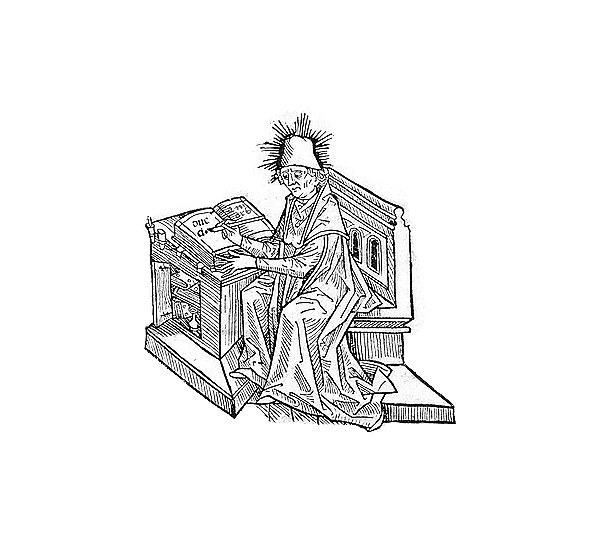“Augustine reminds us of where our true loyalty lies. As we pursue our callings, we can’t get too cozy with the world’s system. Christians should live like citizens of the City of God while working and serving in the City of Man.”
— Gregory Soderberg
Whether you love him or hate him, you can’t escape his influence. Augustine (354–430) was a massively prolific North African bishop and theologian. Just about everyone agrees that he was one of the most important figures
in Western thought. What can this church father teach us about theological economics?
Don’t get too comfortable in the City of Man.
In 410, Visigoths invaded Rome, the “eternal city.” It was the first time foreign foes had breached the city in 800 years. Many of the non-Christian Romans blamed the new Christian religion for the disaster. Augustine responded with his best known work, The City of God. In this work of cultural apologetics, Augustine had to refute pagan arguments, while at the same time encouraging Christians who had been robbed, raped, or otherwise affected by the attack. He developed a framework to help Christians make sense of history. There are two cities: the City of God and the City of Man. Both are more of eternal principles, rather than observable realities. In this life, the two cities are jumbled together, but they will be separate in the last judgment.
This framework is still helpful today. Augustine reminds us of where our true loyalty lies. As we pursue our callings, we can’t get too cozy with the world’s system. Christians should live like citizens of the City of God while working and serving in the City of Man. This frees us to do our best, to work hard and be faithful, while also trusting God in the midst of recessions, stock market crashes, and war.
Use, but don’t enjoy.
This is a little more controversial. In an early work, On Christian Doctrine, Augustine drew a sharp line between “using” something and “enjoying” something. We “use” a thing when we have another purpose beyond the thing itself. We “enjoy” something when there is no higher purpose. Augustine argues that only God is worthy of true enjoyment. All other things must be used with an awareness of how they help orient us toward God, or lead us down a path of idolatry. We don’t have to fully agree with the harsh dichotomy to recognize the implications for economics. Money can never be its own reward. Money, and work itself, is always a tool, or is pursued in service of something else. The market tends to reward those who serve others well, but financial reward can’t be our sole motivation. We pursue our callings fundamentally because God calls us to do so. That is our lasting enjoyment.
Reality of sin and sovereignty.
Augustine forces us to take a realistic view of what human effort can, and can’t, do. He helped to develop the doctrine of original sin, which basically means that we are born infected and radically affected by warped desires. This touches every area of our life, including our economic lives. Rather than thinking that we only need the right economic policy to fix our woes, Augustine reminds us that (to paraphrase Aleksandr Solzhenitsyn) the line between good and evil runs through the middle of every human heart. The only solution is the radical grace of Jesus Christ, the ultimate example of humility that is stronger than the pride that dominates the City of Man.
Augustine also stressed the sovereignty of God. He is in complete control of events like the fall of Rome, and he is in control of every fluctuation of the stock market. By resting in his sovereignty, we can seek a more humble economics, focused on service to others, keeping our sights fixed on the only source of lasting joy.






